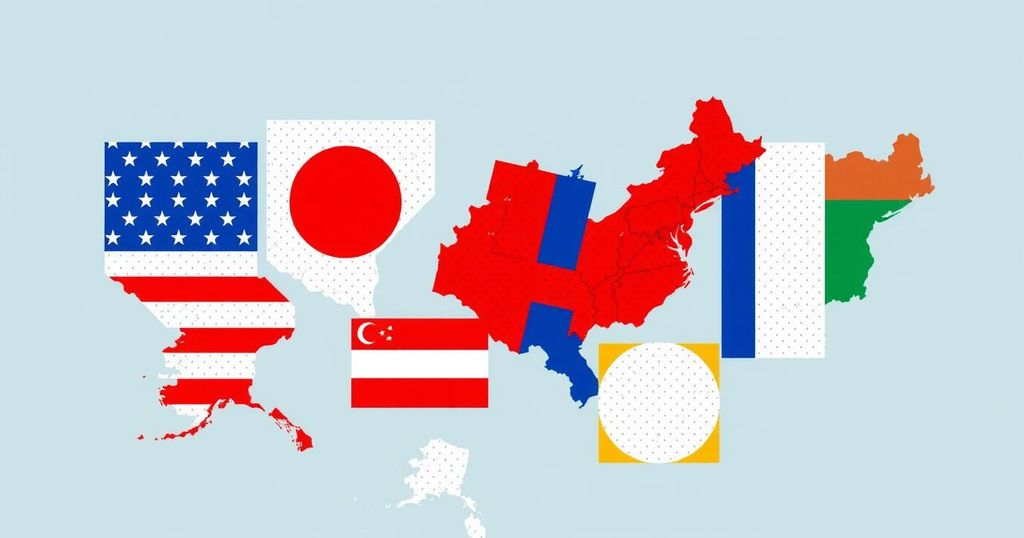The Biden administration has imposed sanctions on Russian and Iranian entities for their attempts to interfere in the 2024 U.S. elections. These sanctions target specific organizations involved in disinformation campaigns and highlight ongoing foreign threats to electoral integrity. The measures aim to protect democratic processes as the election approaches.
The Biden administration announced new sanctions targeting entities in Russia and Iran due to their interference in the 2024 U.S. elections. The sanctions specifically focus on a subsidiary of Iran’s Islamic Revolutionary Guard Corps, the Cognitive Design Production Center, and the Moscow-based Center for Geopolitical Expertise alongside its director, Valery Mikhaylovich Korovin. These new measures reflect ongoing efforts to thwart attempts by foreign governments to undermine American electoral integrity through misinformation and cyber tactics.
Bradley Smith, the acting under secretary for terrorism and financial intelligence at the Treasury Department, emphasized that both Iranian and Russian governments have actively sought to disrupt U.S. elections and exacerbate societal divisions within the country through targeted disinformation. The State Department reiterated that these sanctions are a continuation of previous initiatives aimed at counteracting foreign attempts to manipulate democratic processes.
Moreover, the Treasury Department detailed how Russian entities employed generative artificial intelligence technologies to create and propagate disinformation on platforms designed to mislead users. In parallel, Iranian operatives were reported to have engaged in social engineering tactics to infiltrate presidential campaign activities, which had already been highlighted as a point of concern by U.S. intelligence agencies. These actions exemplify the sustained threat posed by foreign interference in U.S. democracy.
As a result of these designations, any assets owned by the targeted individuals or organizations within U.S. jurisdiction are now frozen and must be disclosed. This move comes as the Biden administration escalates its efforts against potential foreign threats in advance of the upcoming presidential transition, following warnings in July about plots impacting American political stability, including previous threats against former President Trump by Iranian agents.
The comprehensive sanctions reflect an urgent response to the continuing risk posed by nations such as Russia and Iran, which have employed various strategies, including cyber influence campaigns and disinformation dissemination, to challenge U.S. national security and democratic foundations.
Generally, the recent sanctions underscore a persistent commitment by the U.S. government to safeguard its electoral processes from foreign interventions, ensuring the protection of democratic institutions as the nation approaches the 2024 elections.
The issue of foreign interference in U.S. elections has emerged as a significant concern, particularly in light of previous instances where countries such as Russia and Iran have engaged in tactics aimed at destabilizing American democracy. The sanctions recently imposed by the Biden administration target entities suspected of using advanced technologies and disinformation strategies to manipulate public perception and sow discord among the electorate. Such actions have raised alarms about the integrity of the electoral process and the need for decisive measures to counteract foreign threats.
In summary, the Biden administration’s recent imposition of sanctions against Russian and Iranian entities reflects an ongoing commitment to address and mitigate foreign threats to U.S. electoral integrity. By targeting specific organizations and individuals involved in misinformation campaigns and espionage, the administration seeks to uphold the democratic principles of the nation against attempts at subversion. The clear stance against these hostile actions signals a proactive approach in safeguarding the integrity of upcoming elections and maintaining public trust in democratic institutions.
Original Source: www.cbsnews.com






